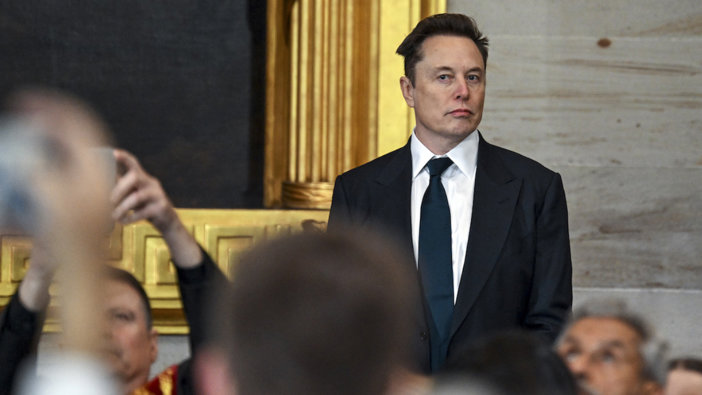
Musk Leaves DOGE, Trump Cabinet Takes Over
Elon Musk exits DOGE as Trump and Cabinet pledge to continue the $2T government cost-cutting initiative.
White House Confirms Leadership Shift at DOGE
Elon Musk, who has led the Department of Government Efficiency (DOGE) since January under President Donald Trump's administration, officially announced his departure late Wednesday. His tenure, marked by a mission to reduce federal spending by $2 trillion, concluded with a public message of thanks and optimism about the agency’s future.
“As my scheduled time as a Special Government Employee comes to an end, I would like to thank President @realDonaldTrump for the opportunity to reduce wasteful spending,” Musk stated on social media. “The @DOGE mission will only strengthen over time as it becomes a way of life throughout the government.”
Alongside Musk, several key advisors and staff members are also stepping down. These include Steve Davis, advisor and spokesperson Katie Miller, and attorney James Burnham. The White House confirmed the departures in a statement on Thursday.
Cabinet to Lead Federal Efficiency Initiative
With Musk’s exit, the responsibility of driving DOGE’s cost-cutting agenda will now be led directly by President Trump and his Cabinet. White House Press Secretary Karoline Leavitt emphasized that each Cabinet member is already embedded in DOGE’s objectives and will continue implementation without disruption.
“The DOGE leaders are each and every member of the president's cabinet and the president himself, who is wholeheartedly committed to cutting waste, fraud and abuse from our government,” said Leavitt. “Each Cabinet secretary is working hand in hand with their DOGE political appointees at the agency level.”
Leavitt reassured the public that the department’s goals will not waver. “The mission of DOGE will continue,” she stated, highlighting that many DOGE employees are now formal political appointees across federal agencies.
Although DOGE was originally tasked with cutting $2 trillion in federal expenditures, current figures show the department achieved approximately $175 billion in savings. These reductions stemmed from asset sales, contract terminations, fraud prevention, and other streamlined practices. According to the agency’s latest update, these measures equate to an estimated $1,087 in savings per American taxpayer.
A senior official within the administration remarked that DOGE’s approach has become a permanent fixture in the government's operational philosophy. “DOGE is now part of the DNA of the federal government,” they noted, adding that the department will continue functioning with the same efficiency-first ethos developed under Musk’s guidance.






